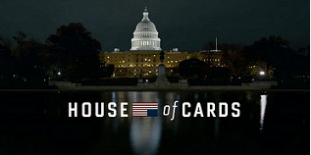Bubbles in Bond Land
The chase for yield is on and Argentina knows when to borrow. Yes, the country south of the equator has defaulted eight times since 1827, says Harvard economist Ken Rogoff. Past non-performance doesn’t promise future non-performance is how the buyers of $2.75 billion dollars worth of 100-year bonds figured it last week.
The country’s Ministry of Finance guessed their dodgy credit history would translate into offering an 8.25% yield, but demand was so strong the bonds sold at a 7.9% coupon. Memories are short as Julie Wernau and Taos Turner write for the Wall Street Journal,
The deal is another significant step in Argentina’s turnaround in global financial markets. At the start of last year, Argentina was effectively barred from international bond markets, the result of an $80 billion default in 2001 that was the largest government default ever at the time.
Argentina isn’t the first country to issue 100-year bonds but they are the first with a ‘junk’ rating.
The Financial Times Gillian Tett mentions the Argentinian junk sale was way oversubscribed and points out other foolishness in an article entitled "The rush for Argentina’s 100-year bond points to an investment bubble."
But investors do not seem to care: there were $9.75bn of bids. And Argentina is not the only peculiar event in bond markets this month. Take a look, for example, at Ivory Coast. In recent weeks, this west African nation underwent yet another military uprising. But this month it sold 16-year bonds with a 6.25 per cent yield — and these were also heavily oversubscribed. Places such as Senegal and Egypt have also seen hot demand for their debt.
Meanwhile, here in the U.S. Grant’s Almost Daily reports that Hertz rental car has issued $1.25 billion worth of 5-year notes with a yield to worst of 8.19%, “far above the 5.66% yield to worst currently quoted in the Bloomberg Barclays High Yield Corporate Bond Index,” Philip Grant writes.
The company that once had O.J. running through airports is out of compliance on its debt-to-EBITDA ratio (5.6 times instead of 4.75 times).
Despite this, Grant quotes Bloomberg,
Terms of Hertz’s $1.25 billion junk-bond sale allow the company to skirt typical restrictions on how it spends money raised from asset sales, Moody’s Investors Service analyst Evan Friedman wrote in a note Friday. That means Hertz could use proceeds to reward shareholders with dividends if it meets certain leverage targets. Such moves could ding bondholders by leaving the company with less cash to repay its debts.
When junk issuers sell bonds, they’re typically expected to use proceeds from asset sales to pay down debt or reinvest in their business. But recent bond offerings by Hertz and oilfield servicer Brand Energy, Inc. contain language that would effectively eliminate that requirement, according to Moody’s.
The young Mr. Grant wryly notes, “A demonstrably shaky borrower in a contracting business getting special terms? File this one into the 2017 time capsule.”
Ms. Tett goes further,
But it is also possible that the credit impulse data point to a watershed. If so, that 2117 Argentina bond may end up being the government bond market equivalent of the Pets.com IPO during the 2001 tech boom — the sign of a bubble peak. Investors should take note, in whatever language they choose.






